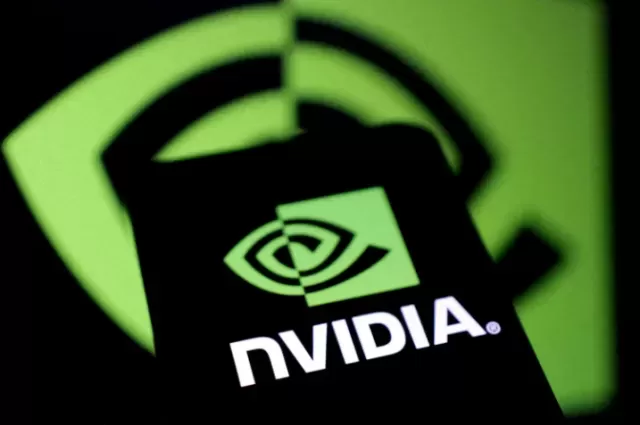Nvidia Leads Tech Giants in Market Cap Race Amid AI Boom

Nvidia, the graphics processing unit (GPU) giant, has achieved a historic milestone, briefly crossing the $4 trillion market capitalization threshold on July 9th. This achievement underscores the company's pivotal role in the ongoing artificial intelligence (AI) revolution, where its advanced chips are in high demand. While the market cap later settled slightly to $3.98 trillion, this valuation signals strong investor confidence in Nvidia's future and the continued expansion of AI technology.
Nvidia's success reflects a strategic shift from its origins in gaming and video editing graphics. Founded in 1993 by Jensen Huang, Chris Malachowsky, and Curtis Priem, the company initially focused on enhancing visual experiences through its powerful GPUs. However, Nvidia's foresight in adapting its technology for AI applications proved to be a game-changer. Today, leading tech companies rely on Nvidia's specialized hardware to power their AI initiatives.
The Rise of Tech Titans: A Market Cap Comparison
Nvidia's ascent highlights the dynamic landscape of the tech industry, where market capitalization serves as a key indicator of a company's perceived value. While market cap differs from overall valuation, it remains an important metric for investors and industry observers.
Here's a snapshot of the current top five companies by market capitalization:
- Nvidia: $3.98 Trillion
- Microsoft: $3.73 Trillion
- Apple: $3.17 Trillion
- Amazon: $2.36 Trillion
- Alphabet (Google): $2.16 Trillion
Microsoft, founded by Bill Gates and Paul Allen in 1975, boasts a diverse portfolio ranging from the ubiquitous Windows operating system and Microsoft Teams to Xbox consoles. The company's strategic acquisitions of LinkedIn, GitHub, and Skype, along with its partnership with OpenAI, further solidify its position in the tech landscape.
Apple, founded by Steve Jobs, Ronald Wayne, and Steve Wozniak, has revolutionized personal electronics with iconic products such as iPhones, MacBooks, and AirPods. The company's ecosystem of services, including iTunes, Apple Music, the App Store, iCloud, and AppleTV+, has created a loyal customer base. Apple's reliance on global manufacturing faces scrutiny amid evolving trade policies.
Amazon, initially an online bookstore founded by Jeff Bezos, has transformed into a global marketplace offering a vast array of products and services. Amazon's expansion into cloud computing, digital streaming, book publishing, and consumer electronics, along with acquisitions such as Whole Foods Market and Audible, reflects its ambition to dominate multiple sectors.
Alphabet, the parent company of Google, emerged from the search engine created by Larry Page and Sergey Brin in 1998. The company's expansion into email, Android mobile phones, and cloud computing, along with its acquisition of YouTube, has made it a dominant force in the digital world. Alphabet is heavily invested in AI development with its own model, Gemini.
Nvidia's achievement signifies a new chapter in the tech industry, where AI-driven innovation is reshaping the competitive landscape and creating new opportunities for growth.